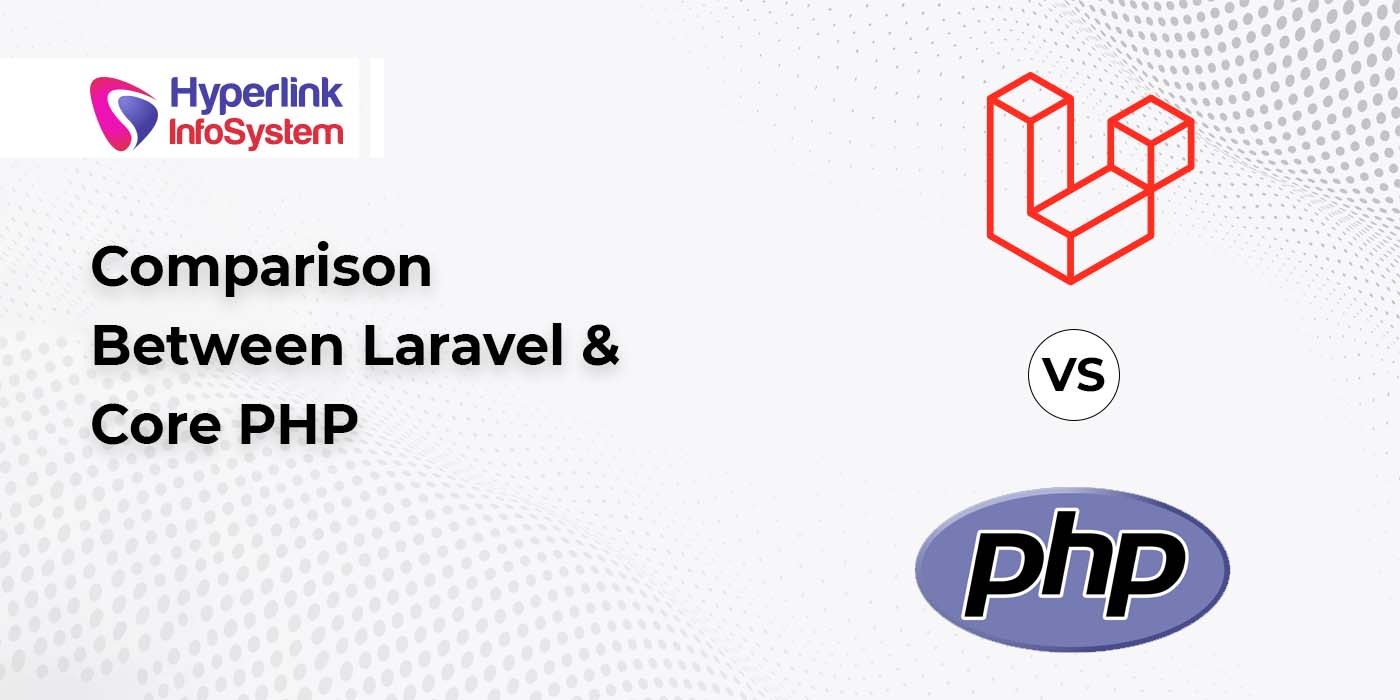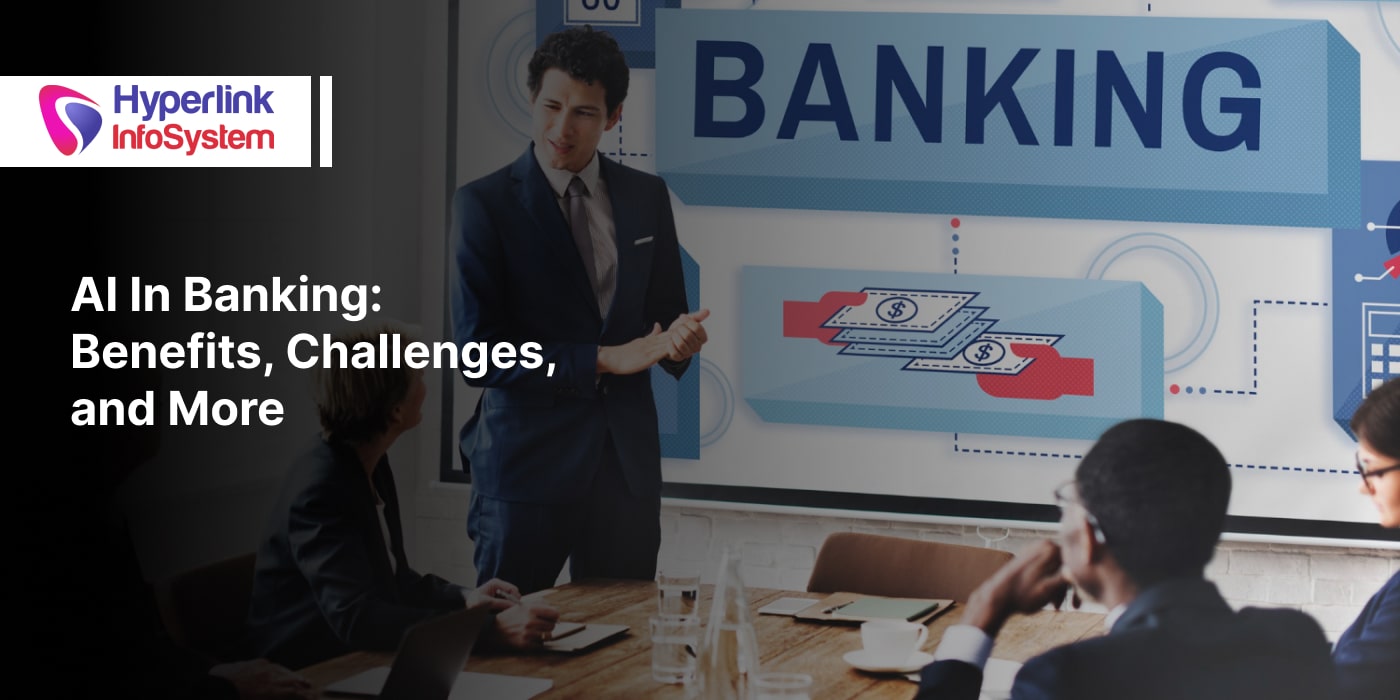In the dynamic realm of web development, choosing the right foundation for your digital dreams can feel akin to selecting the perfect canvas for a masterpiece.
It's a decision that will shape the very essence of your creation. In one corner, we have the battle-hardened veteran, Core PHP, a versatile language that has been the backbone of the web for decades.
And in the other corner, we have Laravel, the young and vibrant contender, armed with a sleek framework and an army of devoted developers.
It's a showdown of experience versus innovation, tradition versus modernity. So, dear reader, fasten your seatbelts as we embark on a journey through the web development landscape, exploring the merits and demerits of Core PHP and Laravel, seeking to unveil the ideal choice for your web applications.
What is Core PHP?
PHP development, when entrusted to skilled PHP developers, becomes a seamless journey into the world of crafting visually engaging, high-performance websites and web-based applications compatible with various browsers. As the precursor to advanced PHP, Core PHP stands as a foundational language of choice.
In the skilled hands of dedicated PHP developers, the absence of external components and libraries not only simplifies the development process but also contributes to cost-efficiency, ensuring timely project completion, even under stringent time constraints.
So, when considering PHP development, make sure to
hire PHP developers who can harness the potential of Core PHP to deliver exceptional web solutions.
Benefits of Core PHP
1) Cost-Efficient Development
PHP development companies can achieve cost-efficiency by tapping into the freely available Core PHP framework online while hiring dedicated PHP developers through various engagement models.
2) User-Centric Solutions
3) Simplified Syntax
The language's straightforward syntax empowers dedicated PHP developers to produce clean and efficient code. It not only aids in enhancing existing applications but also allows for seamless advancement according to specific project requirements.
4) Database Compatibility
Dedicated PHP developers with expertise can seamlessly integrate Core PHP with any database. Its compatibility with Linux and Unix systems further enables PHP development companies to configure and deploy applications on a wide range of servers.
What is Laravel Development?
Laravel, a PHP-based web framework readily accessible online, is a powerful tool in the realm of Laravel development. It serves as the backbone for facilitating crucial functionalities such as routing, authentication, and HTML templating.
Rooted in server-side technology, Laravel adheres to the Model-View-Controller (MVC) architecture, allowing
Laravel development company to clearly demarcate application layers.
This framework is particularly favored for the creation of single-page applications, E-commerce platforms, Content Management Systems (CMS), social networking sites, and expansive web portals brimming with data. Laravel's prowess lies in its ability to streamline data flow efficiently, eliminating bottlenecks in the Laravel development process.
Benefits of Laravel
1) Comprehensive Documentation
When you hire Laravel developers, they benefit from extensive and detailed documentation. This invaluable resource enables them to establish a clean codebase and swiftly address any errors that may arise during the development process.
2) Efficient Caching and Mail Integration
Laravel developers have the capability to configure multiple caches and seamlessly integrate mail services. This results in reduced loading times and ensures that users are promptly updated with the latest information through email notifications.
3) Artisan Automation
Laravel boasts an in-built tool known as Artisan, empowering Laravel developers to automate repetitive tasks effortlessly. They can run scripts via its command-line interface, streamlining the development workflow.
4) Abundance of Packages and Templates
When you hire Laravel developers, they gain access to a vast array of packages and templates available in online repositories. This abundance significantly reduces the cost, time, and effort required to complete the software development cycle, enhancing overall efficiency.
Core PHP Vs. Laravel - A Comprehensive Comparison
Database Compatibility
Databases are the backbone of any application, responsible for storing, organizing, and processing data as per user requests. Laravel supports major databases like SQL, SQLite, MySQL, and Postgres, offering the flexibility of establishing multiple connections for efficient data communication. In contrast, Core PHP boasts versatility, allowing seamless integration with a wide range of databases, including IBM-DB2, MySQL, Oracle, MongoDB, and more. Switching between databases is simplified with its incorporated modules, API reusability, prepared statement support, object-oriented syntax, and exception handling, ensuring a continuous and smooth data transaction channel.
Architecture
The architectural choice plays a pivotal role in web development, affecting speed and data security. Laravel employs the Model-View-Controller (MVC) architecture, enabling seamless collaboration between interface designers and backend developers. This parallel workstream often leads to timely project completion. Additionally, the MVC approach enhances a website's search engine ranking by offering greater customization control aligned with marketing strategies. Core PHP also allows logic layer separation from the presentation layer, facilitating smooth data routing for impeccable input processing.
Application Scalability
The ability to seamlessly integrate new technologies and resources is paramount for enterprise solutions. Laravel and Core PHP continually evolve, incorporating new components and enabling the integration of Cloud Infrastructure into applications. Core PHP boasts features like an autoloader and opcode cache, enabling rapid execution of user requests without the need for code compilation with each request, significantly enhancing its speed.
Functionality and Performance
Performance and speed are critical factors that define the success of a software project. Core PHP is renowned for its swiftness, boasting a high concurrency rate that allows it to efficiently handle multiple user requests simultaneously. According to rigorous tests conducted by open-source communities, PHP has demonstrated its prowess by processing a remarkable 1617 instructions concurrently. In contrast, Laravel lags behind in terms of raw performance. However, it compensates with features like cache tags, which effectively reduce response times by leveraging pre-stored data.
Availability of Resources
Before embarking on a development project, assessing the accessibility and affordability of resources, including hardware, software, and human talent, is crucial. Both Core PHP and Laravel enjoy robust community support, making it easy to assemble a proficient team of analysts, developers, designers, testers, and project managers. You can hire dedicated Core PHP and Laravel developers on various engagement models, ensuring adaptability to your business needs. Moreover, these technologies require no expensive hardware assets for code compilation, making them cost-efficient and time-saving throughout the software development lifecycle.
Security
Data security is non-negotiable for any organization. Laravel is renowned for its robust security measures, offering data integrity and confidentiality through its well-established structure. It includes built-in security features that mitigate SQL injection and cross-site request forgery attacks. Access control and authentication systems are enabled by default, ensuring that only authorized users can access resources securely.
Conclusion
In contrast, Core PHP requires developers to add third-party APIs and define security protocols to safeguard against cyber threats and unauthorized access. While both options have their strengths, Laravel holds a clear advantage in terms of security due to its comprehensive built-in security measures.
























